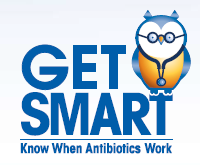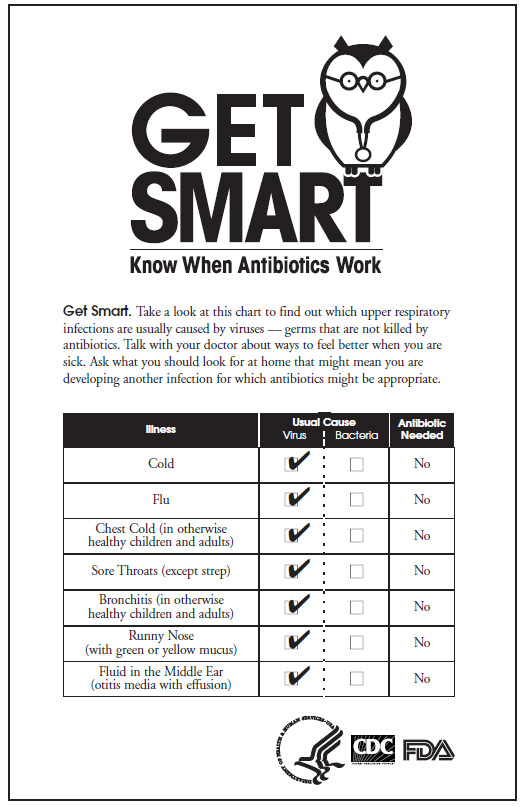
In an effort to promote awareness about the growing problem of antibiotic resistant bacteria, November 18-24 marks the CDC’s annual “Get Smart about Antibiotics Week” here in the US. Other countries abroad are also promoting education on this topic, and the European Union has marked November 18th as it’s “Antibiotic Awareness Day”.
This problem affects us all. That’s because every time any person takes antibiotics, sensitive bacteria are killed, but resistant germs may be left to grow and multiply. These can then infect other people or animals. Repeated and improper uses of antibiotics are primary causes of the increase in drug-resistant bacteria.
How you can help keep antibiotics working
Using antibiotics wisely is the best way to preserve their strength for future bacterial illnesses. It is one way you can make a difference in the growing tide of superbug bacteria. Don’t ask for antibiotics from your doctor if she doesn’t offer them to you. Also, if you or your child has a viral infection like a cold, talk to a doctor or pharmacist about symptom relief. This may include over-the-counter medicine, a humidifier, or warm liquids. Antibiotics do not work against viral infections.
And, instead of immediately reaching for antibiotics, consider using antibiotic alternatives for bacterial infections.

2014 EU Conference for Antimicrobial Awareness
A new single day conference has been created by our friends at the Bella Moss Foundation charity called “One Health Conference”. This conference will promote awareness, research and education in antimicrobial resistance and infection in both humans and animals. It will be hosted jointly by both the Bella Moss Foundation and the Royal Society of Medicine on October 13, 2014. It’s focus is on hygiene, disease control antimicrobial resistance and the responsible use of antibiotics.
If you are interested in attending or getting involved click here: www.onehealthbmf.com
New CDC Fast Facts on Antimicrobial Resistance
Antibiotic resistance has been called one of the world’s most pressing public health problems. MRSA, C. diff, CRE, VRE and many other superbugs are causing more dangerous and deadly infections in more people around the world.
Parent pressure makes a difference. For pediatric care, a study showed that doctors prescribe antibiotics 62% of the time if they perceive parents expect them and 7% of the time if they feel parents do not expect them.
Antibiotics were prescribed in 68% of acute respiratory tract visits – and of those, 80% were unnecessary according to CDC guidelines.
Reference: CDC Facts About Antibiotic Resistance

References and Resources
If you want to get involved, or find out more about CDC’s Get Smart program: https://www.cdc.gov/getsmart/index.html
Find out more here on the European Antibiotic Awareness Day: https://ecdc.europa.eu/en/EAAD/Pages/Home.aspx/




